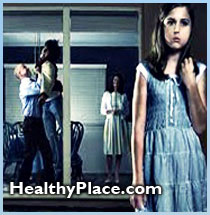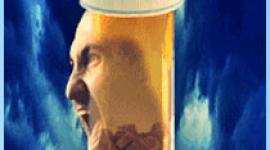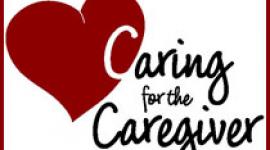Dealing with Family Tensions Caused by Bipolar Disorder
Bipolar disorder creates relationship problems for family members and friends. Here's how to cope with these family tensions.
Bipolar disorder, also known as manic depression, is a serious but relatively common illness that causes sufferers to experience extreme shifts in their mood, energy, and ability to function.
What is Bipolar disorder?
The mood swings experienced by people with bipolar disorder are far more severe than the usual ups and downs of everyday life. Sufferers alternate between mania, when they feel high, full of energy, and restless, and depression, when they feel lethargic, sad, and hopeless. The severity and duration of these episodes varies and often there will be periods of normal mood in between.
The manic phase of bipolar disorder is characterized by poor judgment, resulting in high-risk, impulsive, or destructive behaviors. While manic, sufferers may engage in reckless or dangerous activities such as fast driving, wild spending sprees, provocative or aggressive behavior, and substance abuse. Family members must not only cope with their loved one acting in uncharacteristic ways, but also deal with the lasting consequences of these behaviors.
Relationship problems caused by bipolar disorder
Like any serious illness, bipolar disorder creates problems for family members and friends. Living with someone who experiences extreme, uncontrollable mood swings can be highly stressful and a source of misunderstandings and confrontations.
Alcohol and drug abuse is common in people with bipolar disorder and can make symptoms more severe. Substance abuse may reflect a lack of judgment brought on by the illness or be a deliberate act of "self-medication" by the patient. Experts stress the important of recognizing such problems in bipolar patients and ensuring they are treated by specialists.
 Effective management of substance misuse has dual benefits: It minimizes the negative impact of drug and alcohol on the sufferer and their family, and also increases the likelihood that treatment for bipolar disorder will be successful.
Effective management of substance misuse has dual benefits: It minimizes the negative impact of drug and alcohol on the sufferer and their family, and also increases the likelihood that treatment for bipolar disorder will be successful.
The price a bipolar sufferer pays for the euphoric high is a crashing low, which can be just as hard for family and friends to cope with. In the manic phase the sufferer can be the life and soul of the party, whereas during a depressive episode they are likely to withdraw into themselves. They may be irritable or restless, show disturbed sleep and eating patterns, and be unable to enjoy their usual activities. This can be extremely upsetting for family members, particularly children, who may feel that they have done something wrong.
Understand that bipolar sufferers cannot control their feelings
It is important to remember that these feelings of hopelessness and depression are neither rational nor under the sufferers' control: they cannot simply "snap out of it." Try to be patient and understanding and remember that your support is crucial, even if it does not appear to be appreciated at the time.
During manic and depressive episodes, patients with bipolar disorder may become suicidal. Research suggests that at least one-quarter of sufferers will attempt suicide, and 10-15% will be successful. Fortunately, drug treatment for bipolar disorder has been proven to substantially reduce the risk of suicide, so family members should remain vigilant and ensure compliance with any prescribed medication. Suicidal thoughts, remarks, or behaviours should always be taken seriously and reported to a qualified professional.
Sometimes, severe bipolar episodes include symptoms of psychosis, such as hallucinations, delusions, and paranoia. Seeing a loved one exhibiting such symptoms can be frightening and confusing but again it is important to bear in mind that these behaviours are caused by the illness and require urgent medical attention. Drugs can be effective in reducing acute psychotic symptoms, while long-term compliance with medication will help prevent them recurring in the future.
Symptom awareness
A particularly frustrating aspect of bipolar disorder is that when someone is in the midst of an episode they are unlikely to realize there is anything wrong. In fact, most sufferers report feeling extremely well at the beginning of a manic episode and don't want it to stop. When someone with bipolar disorder is engaging in activities that are a threat to themselves or others, hospitalization may be necessary. Often this is against the person's will - in other words they are "committed". This is a legal process and only happens when a qualified professional believes that hospitalization is necessary to ensure the person is safe and has access to treatment.
Although forced hospitalization can cause considerable distress at the time, the sufferer will usually acknowledge that it was necessary once treatment has been started and their symptoms are under control.
Social problems
With all these potential sources of conflict between the sufferer and their family, it is no surprise that bipolar disorder is associated with severe psychosocial problems. Even between episodes it is estimated that 60% of sufferers experience enduring difficulties in their home and working lives. Divorce rates are around two to three times higher for bipolar individuals than in the general population; furthermore, their occupational status is twice as likely to deteriorate than those without the illness.
What steps can you take if someone in your family suffers from bipolar disorder?
Family and friends tend to be at the front-line of managing the illness, and there is increasing evidence to suggest that family involvement is directly beneficial to the sufferer. Indeed, studies show that family "psychoeducation" is effective in reducing the risk of relapse, improving compliance with treatment, facilitating general social skills, and promoting family harmony. Some practical ways that family and friends can help are outlined below:
- Learn everything you can about bipolar disorder (psychoeducation). Encourage the sufferer to seek treatment if they have not already done so.
- Offer to accompany them to doctor's appointments.
- Let your loved one know you care; remind them that their feelings are caused by an illness that can be treated.
- Provide ongoing emotional support and encouragement once treatment has started.
- Learn to recognize the warning signs of an imminent relapse, e.g., irritability, fast speech, restlessness, and unusual sleeping patterns.
- Identify triggers, e.g. seasons, anniversaries, stressful life events.
- While the sufferer is stable, formulate a preferred course of action in the event of a future manic or depressive relapse.
- Monitor medication compliance and remind the sufferer that treatment must be continued even when they are feeling well.
- Never ignore remarks about suicide - don't leave the sufferer alone and contact a professional urgently. Make sure your relative is able to look after themselves; alert their physician if they are not eating or drinking.
Detailed information about Bipolar Disorder can be found here: HealthyPlace.com Bipolar Center
next: Family-Focused Therapy Program for Bipolar Disorder
~ bipolar disorder library
~ all bipolar disorder articles
References:
American Psychiatric Association. Practice guideline for the treatment of patients with bipolar disorder (revised). APA: April 2002.
Depression and Bipolar Support Alliance. Dealing effectively with bipolar disorder. DBSA: September 2002.
Depression and Bipolar Support Alliance. Helping a friend or family member with a mood disorder. DBSA: October 2002.
Dore G, Romans SE. Impact of bipolar affective disorder on family and partners. J Affect Disord 2001;67: 147-158.
Engstrom C, Brandstrom S, Sigvardsson S, et al. Bipolar disorder. III: Harm avoidance a risk factor for suicide attempts. Bipolar Disord 2004;6: 130-138.
Fristad MA, Gavazzi SM, Mackinaw-Koons B. Family psychoeducation: an adjunctive intervention for children with bipolar disorder. Biol Psychiatry 2003;53: 1000-1008.
Goodwin FK, Fireman B, Simon GE, et al. Suicide risk in bipolar disorder during treatment with lithium and divalproex. JAMA 2003;290: 1467-1473.
Goodwin GM, for the Consensus Group of the British Association for Psychopharmacology. Evidence-based guidelines for treating bipolar disorder:
National Depressive and Manic-Depressive Association. Is it just a mood or something else? NDMA: February 2002.
National Institute of Mental Health. Bipolar disorder. NIH Publication No 02-3679: Recommendations from the British Association for Psychopharmacology. J Psychopharmacol 2003;17: 149-173. Septembre 2002.
Zaretsky A. Targeted psychosocial interventions for bipolar disorder. Bipolar Disord 2003;5: 80-87.
next: Family-Focused Therapy Program for Bipolar Disorder
~ bipolar disorder library
~ all bipolar disorder articles
APA Reference
Staff, H.
(2008, November 30). Dealing with Family Tensions Caused by Bipolar Disorder, HealthyPlace. Retrieved
on 2026, February 28 from https://www.healthyplace.com/bipolar-disorder/articles/dealing-with-family-tensions-caused-by-bipolar-disorder



